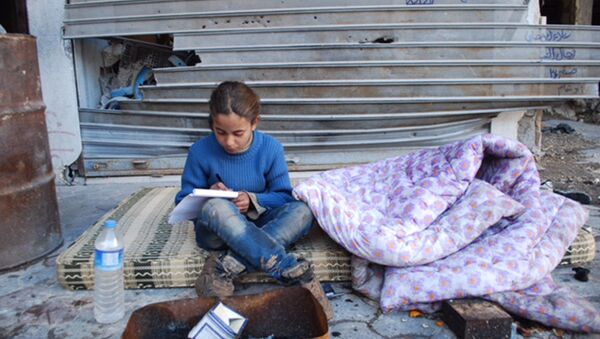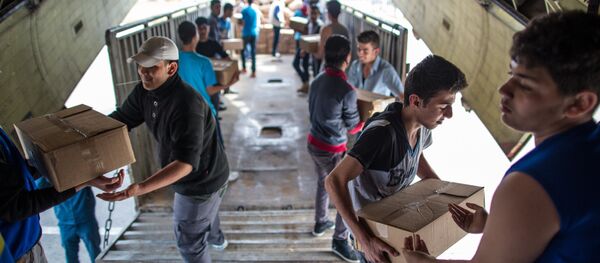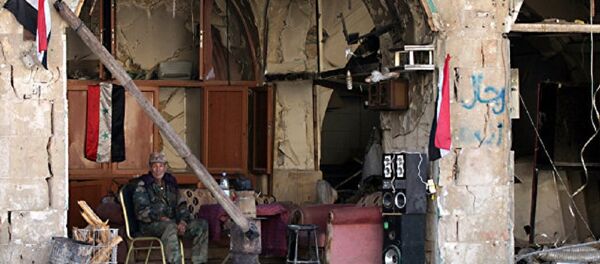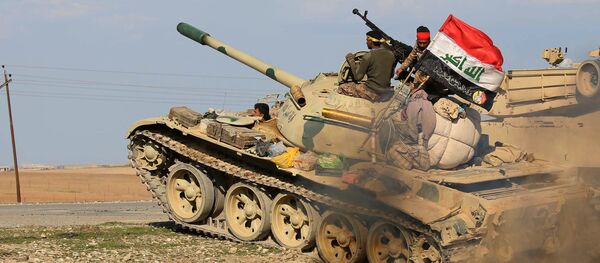"Wars are told, no different than stories. The respective tales determine the image in our minds, our view of conflicts. We know or we believe to know who is guilty and who is not, who are the goodies and who are the baddies," Michael Lüders writes in his recent article The War in Syria and the Blind Spots of the Wes for political magazine Blätter für deutsche und internationale Politik.
Meanwhile, the Syrian opposition is often referred to as "moderate" or perceived as the "Syrian people desperately struggling for freedom."
The author then cites as an example the recent liberation of the Syrian city of Aleppo when the mainstream media published emotionally penetrating pictures of wounded children to support the accusations of the Syrian authorities and the Syrian army.
The other side to the conflict is rarely mentioned, even though it is known only too well that President Assad's enemies are the jihadists.
After the liberation of Aleppo, however, the mainstream media has practically lost all interest in Syria and turned instead to the operation on the liberation of the Iraqi city of Mosul.
This, he says, clearly demonstrates how our perception of war is manipulated by the mass media. The mainstream media presented the 'fall' of Aleppo as an inferno, comparable to the downfall of Dresden during the Second World War. The main focus was on the human tragedy which replaced the political analysis. Any other approach would have meant that the average thinking person would have joined-the-dots – leading to questions about how the US could reasonably be acting jointly with al-Qaeda.
None of this however happens with the coverage of the 'liberation' of Mosul.
Lüders' argues that the main reason for the disparity in the coverage is that "if Mosul is liberated from Daesh (Islamic State) it will have a positive impact on the image of the West," as it will be liberated by the Iraqi army with the support of the US-led coalition, unlike Aleppo, which was liberated by the Syrian army with Russia's support. In this manner, the ongoing media frenzy regarding Russia is carefully maintained, despite mainstream outlets holding up banners of 'impartiality'.
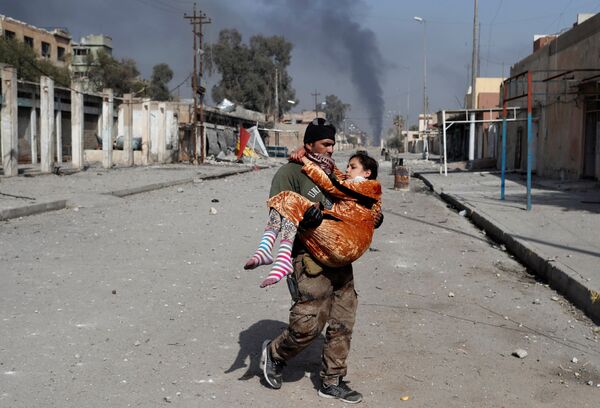
Casualties within the civilian population are not as widely covered in the Mosul battle, despite deaths in both cities, the author says. And while it is presented as an indictment of a terrible regime in Aleppo, it is nothing more that "collateral damage" in Mosul.
Readers and viewers of mainstream media are treated to cheering crowds, victorious Iraqi servicemen, dancing Christians returning to their homes in Mosul and surrounding villages. However, by the time Russian and Syrian servicemen entered Aleppo to the same scenes, the mainstream media reporting on the events had conveniently moved on.
This is a price for the imperious ambitions of others, he states.

